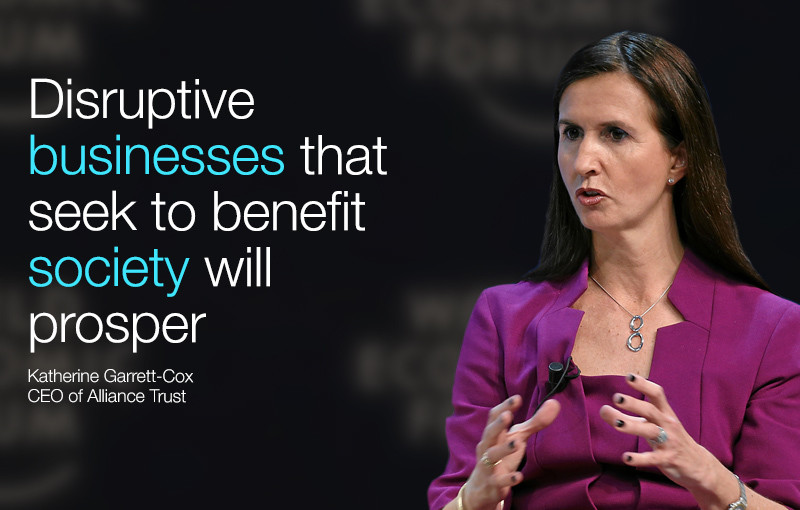http://www.weforum.org/agenda/2016/01/a-once-in-a-lifetime-opportunity-for-businesses?utm_content=bufferb3878&utm_medium=social&utm_source=facebook.com&utm_campaign=buffer
- Global Agenda
- Davos 2016
- Sustainable Development
Is this what the future of business looks like?

Image: REUTERS/Stringer
A bright future beckons for businesses that tackle global challenges
Latest Articles
The UN’s Sustainable Development Goals (SDGs) are a set of 17 high-level, global development targets that address some of our most pressing concerns, such as ending poverty and providing universal access to water, sanitation and education.
Launched in September 2015, they build on the eight Millennium Development Goals established by the UN in 2000 but, critically, they recognise the pivotal role that companies have to play in global sustainable development.
These goals set the world’s economies on a clear path with important roles for companies and opportunities for their investors in creating a better, fairer and more sustainable world.
Beyond GDP
Today, we typically measure economic progress by looking at changes in Gross Domestic Product (GDP). I believe that we need to go further and to do this we need to understand the changing dynamics of that progress. That is, we need to understand the long-term trends that are changing the way we do and respond to things – these trends will be responsible for demonstrating true progress. The SDGs are a means of identifying these long-term trends while also capturing broader measures of wealth and prosperity.

I believe that companies that are exposed to these trends will ultimately be the companies that will benefit from strong growth and generate profits over the long term. It is simple really – businesses that seek to benefit society will prosper, relative to those that act against it. The SDGs identify the needs of our global society and set out a path to meeting those needs. Companies whose products, services and operating practices help us to achieve these goals will be at an advantage.
Tackling water scarcity and climate change
One example of such a trend is water scarcity (goal number 6). There is clearly a huge challenge to communities and businesses across the world, as access to usable water is one of the most critical aspects of both personal and corporate survival. Companies who are willing to be transparent on this issue and clearly manage a resource, that is so vital to local communities, the natural environment and gross margins, are quite simply better investments.
Another example is the impact of climate change (goal number 13). Governments around the world have now agreed that if global warming increases by more than 2 degrees celsius above current temperatures, this could lead to catastrophic and irreversible climate change. In order to stay below this level, carbon emissions need to be significantly limited. If we are to meet this target some of the changes required are huge, with some estimates suggesting that around 80% of the world’s energy production will need to come from non-fossil fuels by 2035, compared to today’s figure which is just 32%.
It will be the disruptive companies who are finding ways to transform traditional industrial and manufacturing processes that will be able to help governments meet these ambitious targets. I believe that these present some of the most interesting opportunities for both society and investors.
The benefits of achieving the SDGs are self-evident. I believe that the private sector has a once in a lifetime opportunity to help society reach these goals. For investors the benefits are stronger long-term returns by investing in companies who are acting for positive change. For companies, competitive advantage lies in developing products and services which act as catalysts for this positive change.
Author: Katherine Garrett-Cox is CEO of Alliance Trust. She is participating in the World Economic Forum’s Annual Meeting in Davos.



沒有留言:
張貼留言